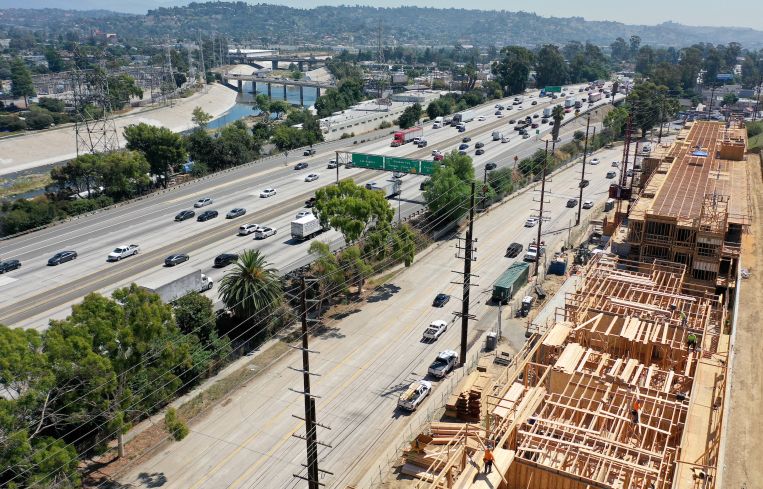California Legislature OKs Bill to Increase Multifamily Development
State Senate also approves a bill that would allow colleges and churches to more easily build affordable housing
By Nick Trombola September 12, 2023 2:45 pm
reprints
A controversial state housing law is primed to expand after California lawmakers voted Monday to extend its expiration date by a decade, the L.A. Times reported.
Senate Bill 35, originally signed into law in 2017 and set to expire in 2026, allows housing developers to more quickly build multifamily projects by cutting bureaucratic red tape. The law applies only to cities that have fallen behind on housing goals mandated by the state.
SB 423, a bill approved by both the State Assembly and Senate on Monday, would extend the expiration date of the housing law by 10 years. It now heads to the desk of Gov. Gavin Newsom, who has until Oct. 14 to sign or veto it.
“With the strengthened SB 35’s streamlining provisions, we’re bringing California’s ambitious housing goals within reach,” Sen. Scott Wiener (D-San Francisco), author of both bills, said in a statement. “SB 35 has proven one of the strongest tools in our toolbox for driving affordable housing development. That’s why a growing labor, business, anti-poverty, and environmental coalition has gone to bat to strengthen and extend this important law.”
Although the law has paved the way for the construction of thousands of homes since 2017, its extension has faced resistance from some labor unions, such as the State Building and Construction Trade Council of California. According to the L.A. Times, the Trade Council and other labor groups are concerned that the law does not adequately protect construction workers.
Wiener amended SB 423 throughout the spring and summer to assuage some of those labor worries, as well as those from some environmental groups concerned about construction in certain coastal and wildfire risk zones.
Yet the bill also faces opposition from dozens of cities, including in Los Angeles County, where municipal leaders argue that it would allow the state to bypass local building requirements.
SB 423, among other state measures, would “limit local land use authority, silence community input and empower the California Department of General Services to approve housing on state-owned property,” according to a statement last week by the League of California Cities, a non-profit organization that lobbies on behalf of hundreds of local governments.
Malibu, Venice, Santa Monica, Carmel-by-the-Sea, Western San Francisco and San Diego are some of the wealthy coastal cities that could see new multifamily developments under the expanded law.
The Senate on Monday also approved SB 4, a bill that would allow nonprofit colleges and faith organizations such as churches and mosques to more easily build affordable housing on their properties.
Nick Trombola can be reached at NTrombola@commercialobserver.com.



